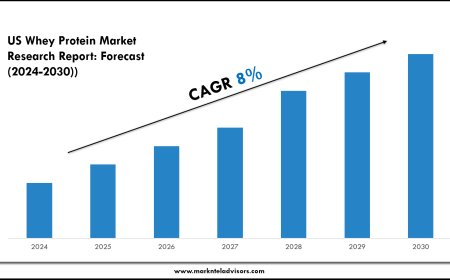Top 10 Real Estate Websites for Home Buyers
Introduction Buying a home is one of the most significant financial decisions most people will ever make. With such high stakes, the platform you choose to search for properties can make all the difference. In today’s digital age, countless real estate websites promise to simplify your home search—but not all are created equal. Some overload users with misleading listings, inflated prices, or outd
Introduction
Buying a home is one of the most significant financial decisions most people will ever make. With such high stakes, the platform you choose to search for properties can make all the difference. In todays digital age, countless real estate websites promise to simplify your home searchbut not all are created equal. Some overload users with misleading listings, inflated prices, or outdated data. Others offer verified inventory, detailed neighborhood insights, and tools designed specifically for serious buyers.
This guide identifies the top 10 real estate websites for home buyers you can trust. Each platform has been evaluated based on data accuracy, user experience, transparency, buyer-focused features, and long-term reliability. Whether you're a first-time buyer, relocating to a new city, or investing in a second property, these sites provide the clarity and confidence you need to make informed decisions.
Trust in real estate isnt just about brand recognitionits about consistent performance, verified listings, and tools that put the buyers needs first. By the end of this guide, youll know exactly which platforms deliver real value and which ones simply fill your screen with noise.
Why Trust Matters
The real estate market is complex, dynamic, and often opaque. Without trustworthy sources, buyers risk wasting time on properties that no longer exist, paying above market value due to inaccurate pricing, or overlooking critical details about neighborhoods, schools, or future development plans. Trustworthy real estate websites eliminate guesswork by offering verified data, transparent sourcing, and buyer-centric functionality.
Many platforms rely on automated data aggregation from multiple Multiple Listing Services (MLS), but not all update their feeds in real time. Some even include expired, withdrawn, or off-market listings to inflate their inventory numbers. Others lack detailed property histories, tax records, or school district boundariesinformation essential for long-term decision-making.
Trusted sites go beyond basic search filters. They integrate neighborhood analytics, price trend visualizations, mortgage calculators tailored to local markets, and direct access to verified agent profiles with buyer reviews. They prioritize accuracy over volume, and transparency over marketing.
Additionally, trust is built through consistency. A site that updates listings daily, provides clear disclaimers when data is estimated, and offers educational content about the buying process demonstrates integrity. These are the hallmarks of platforms that put the buyers interests ahead of advertising revenue or lead generation.
Choosing a reliable platform doesnt just save timeit can save tens of thousands of dollars over the life of a mortgage. It reduces stress, minimizes surprises, and empowers buyers with knowledge. In a market where information asymmetry can lead to costly mistakes, trust isnt optionalits essential.
Top 10 Real Estate Websites for Home Buyers
1. Zillow
Zillow remains one of the most widely used real estate platforms in the United States, and for good reason. It offers an expansive database of listings across all price ranges and property types. What sets Zillow apart is its Zestimateits proprietary home value estimatorwhich provides buyers with a starting point for understanding market value. While Zestimates are not appraisals, they are updated frequently and include detailed breakdowns of comparable sales, square footage, and recent renovations.
Zillows interface is intuitive, with advanced filtering options for price, bedrooms, bathrooms, lot size, and property type. Buyers can save searches, receive daily email alerts for new listings, and view high-resolution photos, virtual tours, and 3D walkthroughs on most listings. The platform also includes neighborhood insights such as crime rates, school ratings from GreatSchools.org, walkability scores, and local amenities.
One of Zillows strongest features is its transparency. Each listing clearly indicates whether its a listing from a real estate agent, a for-sale-by-owner (FSBO), or a bank-owned property. Zillow also displays how long a property has been on the market and the number of price reductions, helping buyers gauge seller motivation.
While Zillow has faced criticism in the past for inaccurate Zestimates in volatile markets, its data quality has improved significantly with better MLS integrations and user-reported corrections. For most buyers, especially those in urban and suburban markets, Zillow is a reliable starting point for research and discovery.
2. Realtor.com
Realtor.com is the official site of the National Association of Realtors (NAR) and is directly connected to over 800 regional MLS systems across the U.S. This direct MLS feed makes it one of the most accurate and up-to-date sources for active listings. Unlike some competitors that rely on third-party data aggregators, Realtor.com receives real-time updates, ensuring that sold, pending, and expired listings are removed promptly.
The platform excels in providing comprehensive property details, including tax history, recent renovations, HOA fees, and flood zone information. Buyers can filter by specific criteria such as energy efficiency ratings, smart home features, and proximity to public transit. Realtor.com also offers a Home Value Estimate tool, which is often more conservative and data-driven than Zillows Zestimate, making it a preferred choice for buyers seeking conservative valuations.
One standout feature is its Neighborhood Insights section, which compiles data from public sources to show median home prices, rental yields, population growth, and job market trends over the past five years. This long-term perspective helps buyers assess whether a neighborhood is appreciating or declining.
Realtor.com also prioritizes buyer education with detailed guides on mortgages, closing costs, and negotiation tactics. Its clean, uncluttered interface reduces distractions from ads, allowing users to focus on property data. For buyers who prioritize accuracy, transparency, and direct MLS access, Realtor.com is among the most trustworthy platforms available.
3. Redfin
Redfin stands out as a hybrid platform that combines technology with licensed real estate agents who work exclusively for buyers. Unlike traditional brokerages, Redfin agents are salaried employees, not commission-driven, which reduces conflicts of interest and aligns their incentives with the buyers goals.
The website offers a highly interactive map-based search experience, allowing users to drag and zoom to explore neighborhoods visually. Redfins heat maps display price trends, days on market, and inventory levels by block, giving buyers a granular understanding of local dynamics. Its Redfin Estimate is often more accurate than Zillows because it incorporates more recent sales data and adjusts for unique property characteristics.
One of Redfins most valuable tools is its Offer Guidance feature, which analyzes comparable sales to suggest competitive offer amounts and provides insights into how likely a seller is to accept an offer. Buyers can also schedule showings directly through the platform, and Redfin agents coordinate tours on the same day, reducing delays.
Redfin also provides detailed neighborhood reports, including crime statistics, school ratings, noise levels, and even local restaurant density. Its mobile app is among the best in the industry, with push notifications for new listings and price drops. Redfins commitment to transparencysuch as clearly labeling which listings are Redfin listings versus third-party listingsbuilds consistent trust with users.
For buyers who want more than just datathose who want guided, tech-enabled supportRedfin offers a uniquely reliable experience.
4. Trulia
Trulia, now owned by Zillow Group, has carved out a niche as a buyer-focused platform with a strong emphasis on neighborhood insights and lifestyle data. While it shares much of its listing data with Zillow, Trulias interface is optimized for users who prioritize community information over raw property metrics.
Trulias Neighborhood Insights section is among the most detailed in the industry. It includes crowd-sourced reviews from residents on topics like safety, noise, parking, and local events. Buyers can read real-life experiences from current homeowners, which often reveal nuances not captured in official statistics.
The platform also features an interactive Commute Time calculator that shows how long it takes to reach major employment centers, airports, and schools from any given property. This is especially useful for professionals relocating for work or families prioritizing school access.
Trulias price trend graphs are visually compelling and easy to interpret, showing historical appreciation over 5-, 10-, and 20-year periods. It also provides alerts for price reductions, open houses, and new listings matching saved criteria.
While Trulia doesnt offer direct agent connections like Redfin, its integration with Zillows database ensures listings are accurate and updated regularly. For buyers who value community feedback and lifestyle compatibility as much as property specs, Trulia delivers unmatched depth in neighborhood context.
5. Homes.com
Homes.com is a lesser-known but highly reliable platform that aggregates listings from over 1,000 regional MLS systems and real estate brokerages. It stands out for its clean design, minimal advertising, and focus on factual data over flashy visuals.
The site provides detailed property histories, including past sale prices, tax assessments, and ownership records. Buyers can access public records such as building permits, zoning classifications, and flood risk assessments directly on listing pages. This level of transparency is rare on other platforms.
Homes.com also includes a Home Affordability Calculator that factors in local property taxes, insurance rates, and HOA feesinformation often missing from competitor sites. Its School Finder tool pulls data from the U.S. Department of Education and GreatSchools.org to rank schools by test scores, student-to-teacher ratios, and diversity metrics.
One of its most underrated features is the ability to compare up to five side-by-side listings with detailed metrics. Buyers can see at a glance which property offers the best value based on price per square foot, lot size, and year built. This comparison tool is invaluable for narrowing down choices without visiting each home.
Homes.com is particularly strong in rural and mid-sized markets where other platforms may lack coverage. Its commitment to factual reporting, lack of sponsored listings, and absence of aggressive lead capture make it a quiet but trustworthy resource for serious buyers.
6. PropertyShark
PropertyShark is not a consumer-facing platform in the traditional sense, but it is an indispensable tool for buyers who want deep, granular data on propertiesespecially in high-value markets like New York, Los Angeles, and Miami. Originally designed for investors and professionals, PropertyShark offers access to public records that are often difficult to find elsewhere.
The platform provides full ownership histories, lien records, mortgage details, foreclosure activity, and even environmental reports. Buyers can trace a propertys chain of title back decades, view assessment changes over time, and identify patterns of speculative flipping.
Its Property Snapshot tool compiles all relevant data into a single report, including zoning codes, square footage discrepancies, recent permit applications, and neighbor property sales. This level of due diligence is critical for buyers in markets with complex regulations or high fraud risk.
PropertyShark also includes a Market Pulse feature that shows supply-demand ratios, days on market trends, and price-per-square-foot benchmarks by zip code. While the interface is more technical than other sites, its data accuracy is unmatched. For buyers seeking to avoid hidden liabilities or overpaying for a property with a troubled history, PropertyShark is a non-negotiable resource.
7. Coldwell Banker
Coldwell Banker, one of the oldest and most established real estate brands in the U.S., operates a highly credible website that leverages its nationwide network of independent agents. Unlike brokerages that prioritize lead generation, Coldwell Bankers site emphasizes verified listings and agent credentials.
Each listing is associated with a named agent, complete with a professional bio, client reviews, and transaction history. Buyers can filter agents by experience level, language spoken, and specialization (e.g., first-time buyers, luxury homes, relocation). This transparency builds confidence in the human element of the transaction.
The platform includes a Home Search tool with filters for energy efficiency, accessibility features, and pet policiesdetails often overlooked by other sites. Coldwell Banker also provides downloadable neighborhood guides with local school calendars, community events, and public service contacts.
Its Market Trends section offers quarterly reports for over 200 metropolitan areas, showing inventory levels, median sale prices, and days on market. These reports are published by the companys in-house economists and are based on verified MLS data, not estimates.
Coldwell Bankers site is particularly strong in markets where brand reputation matterssuch as luxury, retirement, and international buyer segments. Its long-standing presence and adherence to professional standards make it a dependable choice for buyers seeking stability and credibility.
8. Century 21
Century 21s website is another legacy brand that has modernized effectively. It combines a clean, mobile-responsive interface with a robust database of listings and a strong emphasis on agent accountability. What distinguishes Century 21 is its Verified Listings badge, which indicates properties confirmed by the listing agent within the last 24 hours.
Buyers can search by neighborhood, school district, or even architectural style. The site also includes a Home Value Report that combines public records, recent sales, and market trends to generate a conservative valuation range. Unlike Zillows Zestimate, this report clearly states its data sources and limitations.
Century 21s Neighborhood Profiles provide insights into local crime statistics, average household income, and public transportation options. It also features a Move-In Ready filter that highlights homes with updated kitchens, HVAC systems, and roofshelping buyers avoid costly repairs.
The platform integrates with Google Street View and provides 3D floor plans on over 80% of its listings. Buyers can also schedule virtual walkthroughs directly through the site. Century 21s commitment to verified, up-to-date information and its focus on buyer education make it a trustworthy option for those seeking a balanced mix of technology and human expertise.
9. LoopNet (for Investment Buyers)
While primarily known for commercial real estate, LoopNet is an essential tool for buyers interested in multi-family homes, duplexes, triplexes, or small apartment buildings as investment properties. It offers the most comprehensive database of income-producing properties in the U.S., with detailed financial metrics that other platforms ignore.
Each listing includes gross rental income, operating expenses, net operating income (NOI), cap rates, and occupancy rates. Buyers can compare properties side-by-side based on cash flow potential, return on investment, and debt service coverage ratios.
LoopNet also provides zoning information, property tax records, and historical rent trends. For buyers analyzing long-term returns, these data points are critical. The platform includes a Market Analysis tool that forecasts rent growth and vacancy rates by metro area based on economic indicators.
Unlike residential sites, LoopNet doesnt clutter listings with lifestyle photos or neighborhood reviews. Instead, it focuses on financial transparency and professional-grade data. While it may seem intimidating at first, its tools are invaluable for buyers looking to build wealth through real estate investment.
10. HUD Home Store
The U.S. Department of Housing and Urban Development (HUD) operates the official website for purchasing foreclosed homes owned by the federal government. These propertiesoften former FHA-insured homesare sold at below-market prices and are available to all qualified buyers, not just investors.
The HUD Home Store provides a complete inventory of homes available for purchase, with detailed photos, disclosures, and inspection reports. Each listing includes the minimum bid, required down payment, and closing timeline. Buyers can filter by price range, number of bedrooms, and state.
What makes HUD homes trustworthy is their transparency. All properties are sold as-is, but the website clearly states known issues, such as lead paint, structural damage, or mold. Buyers have access to licensed inspectors who can conduct pre-bid evaluations.
The site also offers educational resources on FHA financing, the bidding process, and homeowner responsibilities. HUD homes are often the most affordable entry point into homeownership, especially for first-time buyers in urban areas. While inventory is limited and competition can be high, the platforms integrity and government backing make it one of the most trustworthy sources for discounted homes.
Comparison Table
| Website | MLS Integration | Price Accuracy | Neighborhood Data | Buyer Tools | Agent Transparency | Best For |
|---|---|---|---|---|---|---|
| Zillow | Partial (Aggregated) | Good (Zestimate) | Excellent | Virtual tours, alerts, savings | Clear agent labels | General home search |
| Realtor.com | Direct (800+ MLS) | Excellent | Very Good | Price trends, tax history | Agent profiles with reviews | Accuracy-focused buyers |
| Redfin | Direct | Excellent | Excellent | Offer guidance, same-day showings | Salaried agents only | Tech-savvy buyers |
| Trulia | Partial (Zillow Group) | Good | Outstanding (resident reviews) | Commute calculator, alerts | Agent info available | Lifestyle-focused buyers |
| Homes.com | Direct (1,000+ MLS) | Excellent | Good | Side-by-side comparison, affordability calculator | Minimal ads, no sponsored listings | Rural and mid-market buyers |
| PropertyShark | Public records only | Exceptional | Basic | Ownership history, liens, permits | Not agent-focused | Investors, due diligence |
| Coldwell Banker | Direct | Excellent | Very Good | Neighborhood guides, market reports | Verified agent bios and reviews | Luxury and relocation buyers |
| Century 21 | Direct | Excellent | Good | Verified listings, 3D floor plans | Agent profiles with transaction history | Buyers seeking reliability |
| LoopNet | Commercial MLS | Excellent | Market trends only | Financial metrics, cap rate calculator | Broker/agent listings | Investors in multi-family |
| HUD Home Store | Government inventory | Exact (foreclosure pricing) | Basic | Disclosure reports, FHA guidance | Government-approved agents | First-time and budget buyers |
FAQs
Are real estate websites reliable for finding accurate home prices?
Yes, but reliability varies. Platforms with direct MLS integrationsuch as Realtor.com, Redfin, and Homes.comtend to offer the most accurate pricing because they receive live updates from local listing services. Sites that rely on third-party data or algorithms, like Zillows Zestimate, should be used as starting points, not final valuations. Always verify pricing with a local agent or appraiser before making an offer.
Can I trust the neighborhood data on these websites?
Most reputable sites source neighborhood data from public records, government databases, and verified third parties like GreatSchools.org or the U.S. Census Bureau. Trulia and Redfin go further by incorporating resident reviews and crime data from local law enforcement. However, no platform can capture every nuancesuch as upcoming development plans or unreported safety concerns. Cross-reference with local forums, city planning websites, and in-person visits for the full picture.
Do I need to work with an agent if I use these websites?
No, you are not required to work with an agent to use these platforms. However, an experienced buyers agent can help you interpret data, negotiate offers, and navigate legal documents. Many of these sites, like Redfin and Realtor.com, offer the option to connect with agents directly. Even if you do your own research, having professional guidance during the offer and closing stages can prevent costly mistakes.
Why do some listings show as coming soon or pre-listing?
Coming soon listings are properties that the seller has agreed to market but has not yet made publicly available for showings. These are often used to generate early interest. Pre-listing refers to properties in the process of being listed but not yet in the MLS. While these listings can indicate future availability, they are not guaranteed to become active. Use them to gauge market trends, but dont rely on them for immediate purchase decisions.
How often are listings updated on these sites?
Direct MLS-connected sites like Realtor.com and Redfin update listings within hours of changes. Sites that aggregate data from multiple sources may take 2472 hours to reflect updates. If a property shows as active on one site but sold on another, the latter is likely more current. Always check the last updated timestamp on each listing.
Are for-sale-by-owner (FSBO) listings trustworthy?
FSBO listings can be legitimate and offer savings on commission, but they come with risks. Without a listing agent, sellers may not disclose all property issues, and the transaction process can be more complex. Platforms like Zillow and Homes.com label FSBO listings clearly and often provide checklists to help buyers navigate these transactions safely. Always request a home inspection and consider hiring a transaction coordinator if buying a FSBO property.
Can I use these sites to find homes outside the U.S.?
Most of the platforms listed here focus exclusively on U.S. markets. For international buyers, consider platforms like Rightmove (UK), Zoopla (UK), Domain (Australia), or Immobilienscout24 (Germany). Always verify local regulations, tax implications, and financing options when purchasing property abroad.
Do these websites charge buyers any fees?
No, reputable real estate websites do not charge home buyers to search, view listings, or save properties. Any site asking for payment to access listings or property reports is likely a scam or a lead-generation service. Legitimate platforms earn revenue through advertising from agents and brokersnot from buyers.
What should I do if I find a listing with incorrect information?
If you notice inaccurate detailssuch as wrong square footage, missing features, or outdated priceyou can report the error directly on most platforms. Zillow, Realtor.com, and Redfin all allow users to submit corrections. Additionally, notify the listing agent or the MLS directly. Accurate data benefits everyone in the market.
Is it better to use one website or multiple?
Using multiple sites is recommended. Each platform has strengths: Realtor.com for accuracy, Redfin for buyer tools, Trulia for neighborhood insights, and PropertyShark for deep due diligence. Cross-referencing listings across platforms helps you identify discrepancies, spot trends, and confirm property details. Never rely on a single source when making such a significant purchase.
Conclusion
The digital transformation of real estate has given home buyers unprecedented access to informationbut not all tools are created equal. The top 10 platforms highlighted in this guide have earned trust through consistent accuracy, transparency, and buyer-focused innovation. Whether you prioritize MLS-backed data, neighborhood context, financial analysis, or government-backed deals, there is a platform that aligns with your goals.
Trust is not determined by popularity or advertising spend. Its built through reliable updates, honest disclosures, and tools that empower, not manipulate. By using these verified platforms, you reduce risk, save time, and gain confidence in every step of your home search.
Remember: no website replaces the value of personal due diligence. Use these tools to inform your decisions, but always verify critical details with professionals. Combine digital research with local knowledge, and youll be well-positioned to find a home that meets your needs, fits your budget, and stands the test of time.
In a market where information is power, choosing trusted platforms isnt just smartits essential. Start with the sites that match your priorities, explore their features, and let data guide your journey to homeownership.




























